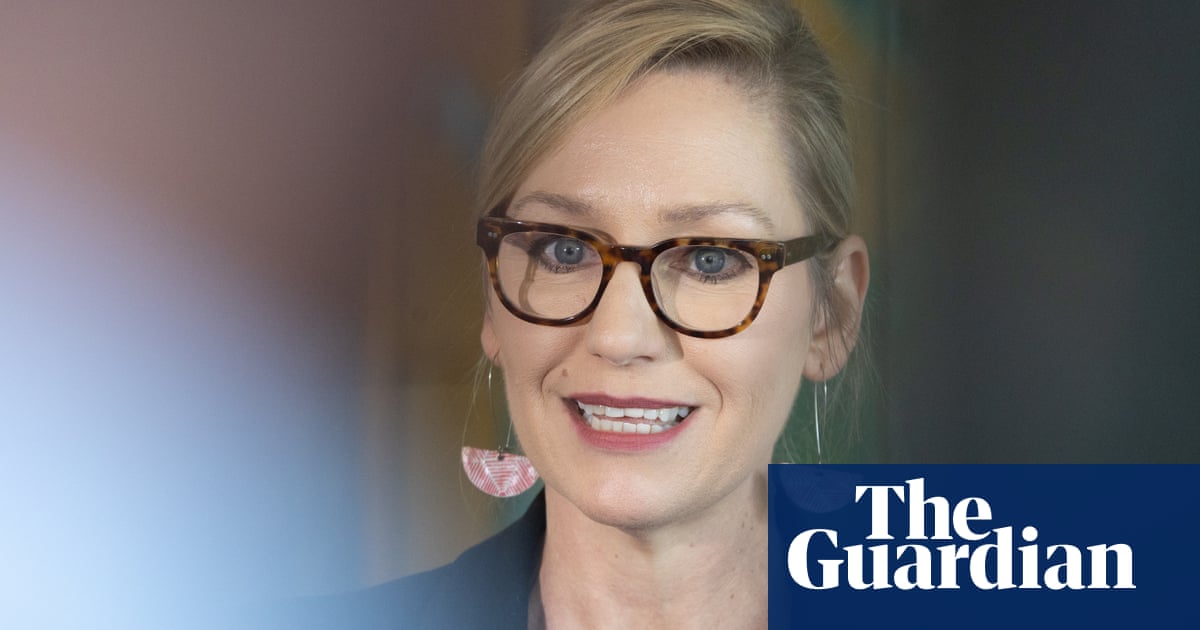Queensland senatorLarissa Watershas been elected unopposed as the new federal Greens leader.
The minor party’s 11 senators and lone MP met in Melbourne on Thursday afternoon to agree on its fifth parliamentary leader afterAdam Bandt was unexpectedly ousted from Melbourneat the May election.
Waters was unanimously elected and the leadership ballot was uncontested, the Greens said in a media release.
New South Wales senator Mehreen Faruqi was re-elected as deputy leader after being contested by Western Australian senator Dorinda Cox. Faruqi won nine votes to three.
Sign up for Guardian Australia’s breaking news email
Nick McKim will continue as the party whip, with Penny Allman-Payne as deputy whip and party room chair. Allman-Payne was challenged by Cox but won eight votes to four.
South Australian senator Sarah Hanson-Young, the longest-serving Greens member in the federal parliament, had been expected to nominate herself for the top role. Hanson-Young will be the Greens manager of business.
Addressing the media on Thursday, Waters said she wanted to see a “progressive parliament” and “politics with heart”, rejecting criticism the minor party focused too strongly on social justice issues in recent years.
“We stand firm always on social justice and human rights, whether that’s First Nations justice, whether that’s a free Palestine, whether that’s peace and human rights globally, we will always be there calling out atrocities, calling out a genocide and standing strongly on social justice and human rights,” Waters said.
Waters said the Greens would remain “firm but constructive” against Labor “because this isn’t about politicians”.
“This is about the people that need our help and the planet that is slowly cooking because of the interests of the fossil fuel industry and big corporates,” she said.
In a statement on Thursday afternoon, former Greens leader Richard Di Natale described the Queensland senator as a “terrific deputy” during his time as leader.
“Larissa has fifteen years experience in Parliament working hard to strengthen our democracy, create a more just society and uphold the rights of women. She was a terrific deputy during my time as Leader and I always appreciated her policy expertise, friendship and her sheer hard work.”
Former Greens senator Janet Rice said Waters would be an “outstanding” leader.
“She is held in enormous esteem by people across the whole party. I know that her passion, intelligence, dedication and authenticity will hold her in good stead for all the challenges ahead,” Rice said.
Sign up toAfternoon Update
Our Australian afternoon update breaks down the key stories of the day, telling you what’s happening and why it matters
after newsletter promotion
Ahead of Thursday’s meeting, party sources told Guardian Australia Waters would be a reluctant but effective next leader. She was described by insiders as a good character to unify the party.
One party source, who spoke under the condition of anonymity, said Waters had both “depth” and “integrity”.“Leadership is bigger than a single individual or a single soundbite. Larissa has got the skills and the character to carry our collective forward,” they said.
Waters was first elected to the Senate in 2011 but wasforced to resign in July 2017after discovering she held Canadian citizenship during parliament’s eligibility crisis.
The Queensland senator returned to the upper house in September 2018 to fill a vacancy upon renouncing her citizenship.
Waters was previously a co-deputy leader to Bandt, and to Di Natale at various times between 2015 and 2022.
As the party’s spokesperson for women, Waters played a role in shaping the independent parliamentary workplace watchdog based on recommendations fromKate Jenkins’ report into the culture in Parliament House.
The Greens have been reduced to a single lower house MP – Ryan’s Elizabeth Watson-Brown – after the May election, with minor primary vote swings against Bandt and two Queensland incumbents, Max Chandler-Mather and Stephen Bates.
The Greens have maintained the losses were due to a drop in votes for the Liberal party favouring Labor candidates, as well as reduction in favourable preference flows.
